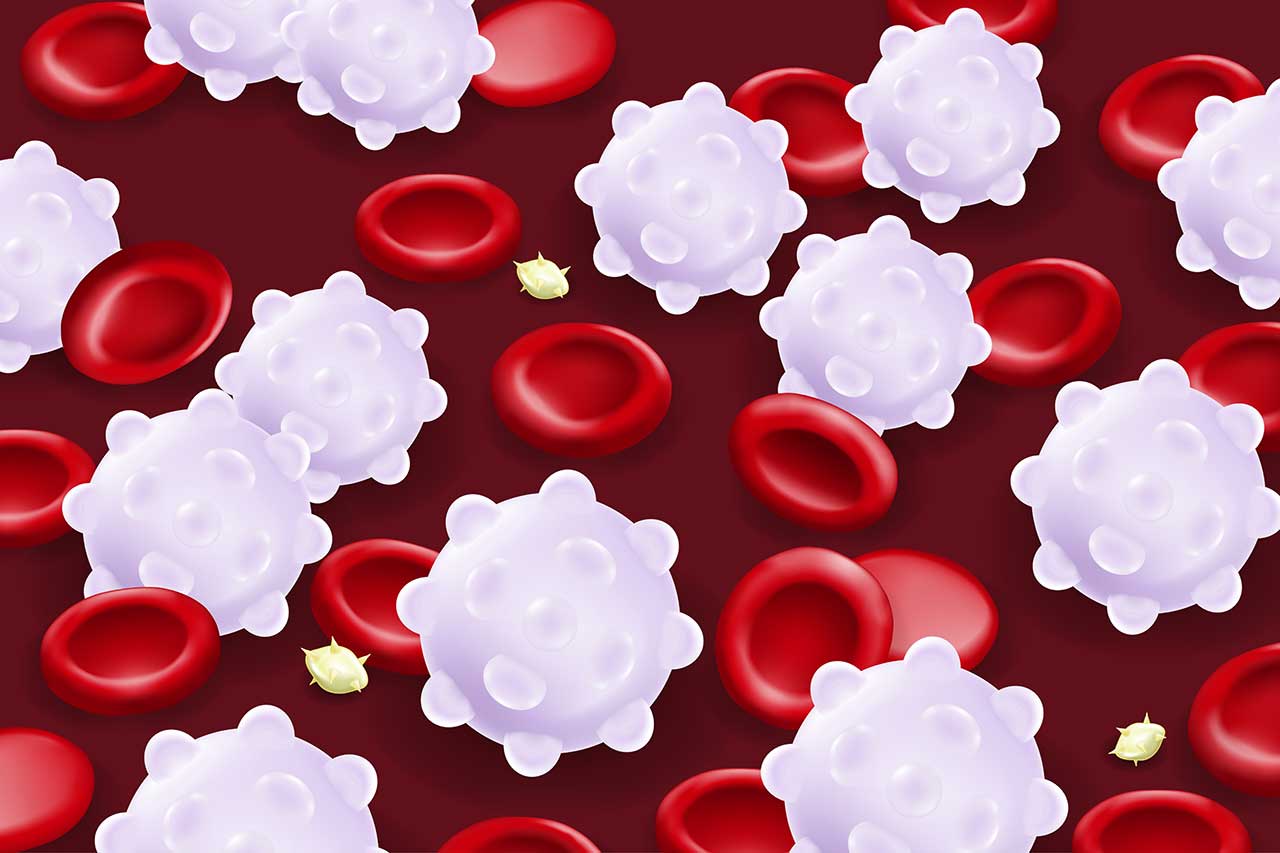
Copiktra (duvelisib) is an FDA-approved drug manufactured by Secura Bio Inc. On September 24, 2018, the FDA authorized this medicine for the first time for the treatment of small lymphocytic lymphoma and chronic lymphocytic leukemia. It belongs to the kinase inhibitor class of medicines. It works by slowing or preventing cancer cell growth.
Get Chemotherapy Copay Assistance
Chemotherapy Financial AssistanceHow Does Copiktra Work?
Copiktra targets proteins in cancer cells and inhibits their growth. It is used to treat small lymphocytic lymphoma as well as chronic lymphocytic leukemia. Copiktra is used after at least two prior cancer treatments have failed or have stopped working [1]. It is not known to be safe or effective in children under 18.
What Is It Used To Treat?
Copiktra is a blood cancer drug. It is usually used to treat 2 types of blood cancer, which are:
- Chronic Lymphocytic Leukaemia (CLL): CLL is a kind of B lymphocyte cancer where the cancerous cells are located mostly in the bloodstream. B lymphocytes are a particular class of white blood cells.
- Follicular Lymphoma: This cancer also affects B lymphocytes. However, the cancerous cells are usually mostly located in the lymph nodes and lymphoid tissue such as the spleen and the tonsils.
In both CLL and follicular lymphoma, doctors use Copiktra in patients whose disease has not improved after at least two other treatments.
How Is Copiktra Used?
Copiktra capsules are available for oral use. You should take it precisely as your doctor has prescribed. Read all drug guides or instruction sheets. Also, follow all instructions on your prescription label.
- Take capsules whole. Do not chew, break, open, or crush the capsule.
- The usual dose is 25 mg twice a day. You can take the capsule with or without food.
- To assist you in avoiding major side effects, you might receive additional drugs. Continue to take these medications for as long as your doctor has prescribed.
- You should take the capsule for as long as prescribed if your side effects are tolerable. If specific side effects occur, your doctor may reduce the dose or discontinue treatment.
- Try not to miss any doses.
If you take too much, contact 911 immediately. Please use caution because this medication can be absorbed through the lungs and skin.
Copiktra Side Effects

Copiktra side effects can be severe. However, it is important to remember that you were given this medication because your doctor believes the benefits outweigh the dangers.
Inform your doctor if you have any of the following serious side effects:
- Edema (swelling)
- Skin rash or other skin reactions
- Anemia
- Severe stomach pain
- Severe diarrhea
- Low white blood cell count: Your doctor will carefully monitor your blood cell count during your treatment. Please inform your doctor if you notice fever, chills, or any infection.
- Liver damage: Signs of liver damage include vomiting/nausea, yellowing skin/eyes, and dark urine.
- Serious allergic reaction: Signs include trouble breathing, swelling/itching, rash, and severe dizziness.
- Pneumonia (infection of the lungs)
- Colitis (inflammation in the large bowel)
Your doctor may temporarily or permanently stop Copiktra if you have severe side effects. These are not all the possible side effects of Copiktra. Talk to your doctor if you have any other questions regarding the side effects.
Below are some common side effects that do not usually need immediate medical attention. Nevertheless, you should report these side effects to your doctor if they continue:
- Muscle and bone pain
- Nausea
- Tiredness
Note: Copiktra can be fatal in pregnant women [2]. Your doctor will conduct a pregnancy test before administering Copiktra. During treatment, use effective contraception. Also, continue using contraception for 1 month after the last dose.
Consult a Chemotherapy Specialist
Get Chemotherapy Treatment AssistanceCopiktra US FDA Boxed Warning
- Fatal and/or serious infections occurred in 31% of duvelisib-treated patients. Monitor for signs and symptoms of infection. Withhold duvelisib if infection is suspected.
- Fatal and/or serious diarrhea or colitis occurred in 18% of duvelisib-treated patients. Monitor for the development of severe diarrhea or colitis. Withhold duvelisib.
- Fatal and/or serious cutaneous reactions occurred in 5% of duvelisib-treated patients. Withhold duvelisib.
- Fatal and/or serious pneumonitis occurred in 5% of duvelisib-treated patients. Monitor for pulmonary symptoms and interstitial infiltrates. Withhold duvelisib.
Copiktra Precautions
Before taking Copiktra, please follow these precautions:
- Inform your doctor if you have allergies.
- Avoid people who have infections like the flu, measles, etc. Copiktra can make you more likely to get infections.
- Before taking any vaccines, inform your doctor that you are taking Copiktra.
- Use proper contraception while taking this medication since it may harm an unborn baby.
Dosing and Administration
The recommended dose of Copiktra is 25 mg twice daily. Take the capsule with or without food. Swallow the whole capsule, do not crush or chew. Your doctor might continue treatment with Copiktra until the disease progresses or until unacceptable toxicity.
Your doctor will provide prophylaxis for Pneumocystis jirovecii (PJP) during treatment with Copiktra.
Copiktra Interactions
Some medications can affect the removal of Copiktra from your body. This may affect how it works in your body. Some of these medicines are:
- Ketoconazole
- Mitotane
- Carbamazepine
- Rifampin
Copiktra may slow down the removal of other medications from the body. Do not take these medications with Copiktra:
- Flibanserin
- Lomitapide
- Lonafarnib
This is not an exhaustive list of all possible interactions. Inform your doctor about all of the medications you are taking.
If you are taking any of the medications mentioned above, you should inform your doctor immediately before starting on Copiktra. In general, you should always inform your doctor and pharmacist about all other medications that you are taking.
Speak to a Specialist
About Copay AssistanceFAQs
1. Is Copiktra Chemotherapy?
Yes. Copiktra is an antineoplastic agent. It turns off a protein called PI3k (phosphatidylinositol 3-kinase). This stops cancerous B-lymphocytes from growing and dividing. Copiktra also kills cancer cells.
2. Is There Copay Assistance?
There are many available options regarding copay assistance that are aimed at different insurance types. Please click here for details or to get assistance that is specific to your insurance plan.
3. Is Copiktra FDA Approved?
The FDA first approved Copiktra on September 24, 2018. FDA approval was based on the data from a phase 3 randomized trial. At the time of approval, the data was limited. The FDA asked the manufacturer to submit 5 years of survival data to evaluate the drug’s long-term safety. On June 30, 2022, the FDA announced that the final overall survival results showed a possible increased risk of death with Copiktra [3].
REFERENCES:
- Copiktra. (2021, December 12). COPIKTRA® (duvelisib) Capsules for Relapsed CLL/SLL. COPIKTRA®. https://copiktra.com/
- Barrow, P., & Clemann, N. (2021). Review of embryo-fetal developmental toxicity studies performed for pharmaceuticals approved by FDA in 2018 and 2019. Reproductive Toxicology, 99, 144–151. https://doi.org/10.1016/j.reprotox.2020.06.013
- Center for Drug Evaluation and Research. (2022, July 14). FDA warns about possible increased risk of death and serious side effects with cancer drug Copiktra (duvelisib). U.S. Food And Drug Administration. https://www.fda.gov/drugs/drug-safety-and-availability/fda-warns-about-possible-increased-risk-death-and-serious-side-effects-cancer-drug-copiktra













